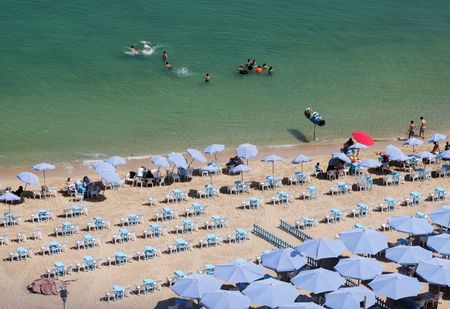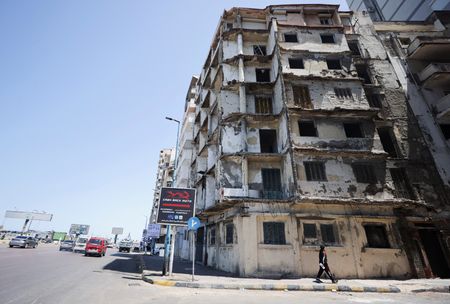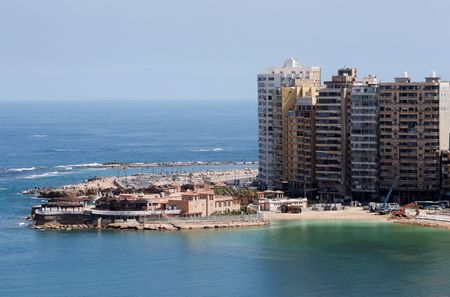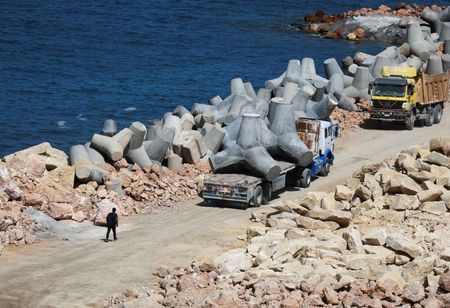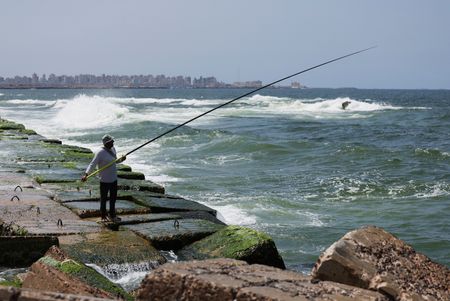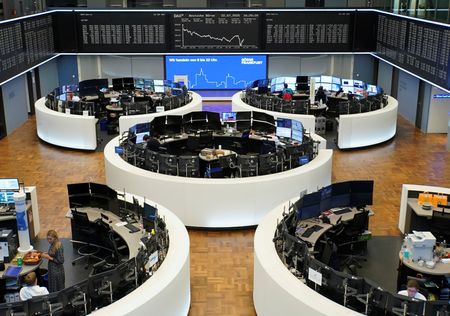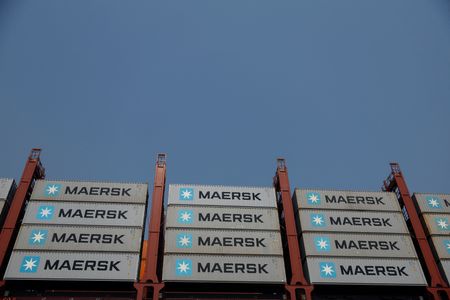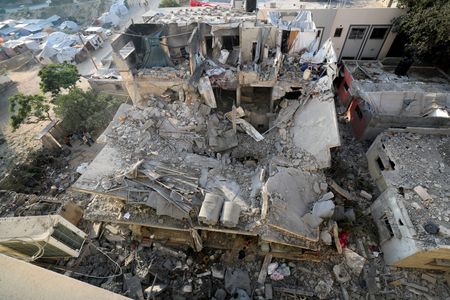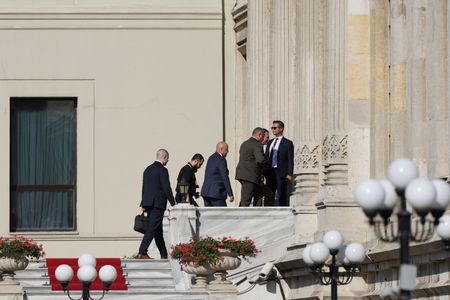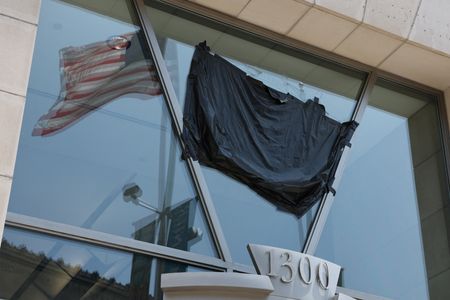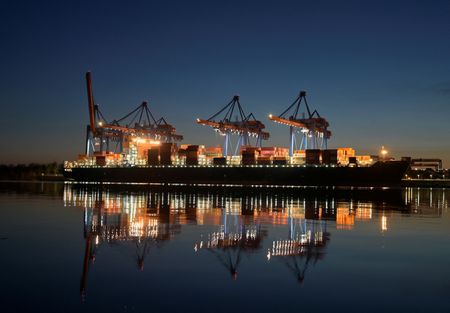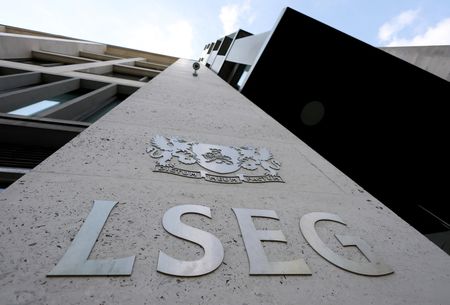By Heba Fouad
ALEXANDRIA, Egypt (Reuters) -From her ninth-floor balcony over Alexandria’s seafront, Eman Mabrouk looked down at the strip of sand that used to be the wide beach where she played as a child.
“The picture is completely different now,” she said. The sea has crept closer, the concrete barriers have got longer and the buildings around her have cracked and shifted.
Every year 40 of them collapse across Egypt’s second city, up from one on average a decade ago, a study shows.
The storied settlement that survived everything from bombardment by the British in the 1880s to attacks by crusaders in the 1160s is succumbing to a subtler foe infiltrating its foundations.
The warming waters of the Mediterranean are rising, part of a global phenomenon driven by climate change. In Alexandria, that is leading to coastal erosion and sending saltwater seeping through the sandy substrate, undermining buildings from below, researchers say.
“This is why we see the buildings in Alexandria being eroded from the bottom up,” said Essam Heggy, a water scientist at the University of Southern California who co-wrote the study published in February describing a growing crisis in Alexandria and along the whole coast.
The combination of continuous seawater rises, ground subsidence and coastal erosion means Alexandria’s coastline has receded on average 3.5 metres a year over the last 20 years, he told Reuters.
“For many people who see that climatic change is something that will happen in the future and we don’t need to worry about it, it’s actually happening right now, right here,” Heggy said.
The situation is alarming enough when set out in the report – “Soaring Building Collapses in Southern Mediterranean Coasts” in the journal “Earth’s Future”. For Mabrouk, 50, it has been part of day-to-day life for years.
She had to leave her last apartment when the building started moving.
“It eventually got slanted. I mean, after two years, we were all … leaning,” she told Reuters. “If you put something on the table, you would feel like it was rolling.”
BARRIERS, BULLDOZERS, CRACKS
Egypt’s government has acknowledged the problem and promised action. Submerged breakwaters reduce coastal wave action and truckloads of sand replenish stripped beaches.
Nine concrete sea barriers have been set up “to protect the delta and Alexandria from the impact of rising sea waves,” Alexandria’s governor, Ahmed Khaled Hassan, said.
The barriers stretch out to sea, piles of striking geometric shapes, their clear curves and lines standing out against the crumbling, flaking apartment blocks on the land.
Authorities are trying to get in ahead of the collapses by demolishing buildings at risk.
Around 7,500 were marked for destruction and 55,000 new housing units will be built, Prime Minister Mostafa Madbouly told a crowd as he stood on one of the concrete barriers on July 14.
“There isn’t a day that passes without a partial or complete collapse of at least one building that already had a demolition order,” Madbouly said.
Some are hopeful the measures can make a difference.
“There are no dangers now … They have made their calculations,” coffee shop owner Shady Mostafa said as he watched builders working on one of the barriers.
Others are less sure. Alexandria’s 70-km (45-mile) long coastal zone was marked down as the most vulnerable in the whole Mediterranean basin in the February report.
Around 2% of the city’s housing stock – or about 7,000 buildings – were probably unsafe, it added.
Every day, more people are pouring into the city – Alexandria’s population has nearly doubled to about 5.8 million in the last 25 years, swollen by workers and tourists, according to Egypt’s statistics agency CAPMAS. Property prices keep going up, despite all the risks, trackers show.
Sea levels are rising across the world, but they are rising faster in the Mediterranean than in many other bodies of water, partly because the relative shallowness of its sea basin means it is warming up faster.
The causes may be global, but the impacts are local, said 26-year-old Alexandria resident Ahmed al-Ashry.
“There’s a change in the buildings, there’s a change in the streets,” he told Reuters.
“Every now and then we try to renovate the buildings, and in less than a month, the renovations start to fall apart. Our neighbours have started saying the same thing, that cracks have started to appear.”
(Reporting by Heba Fouad and Ahmed Fahmy; Writing by Mohamed Ezz; Editing by Katy Daigle and Andrew Heavens)

